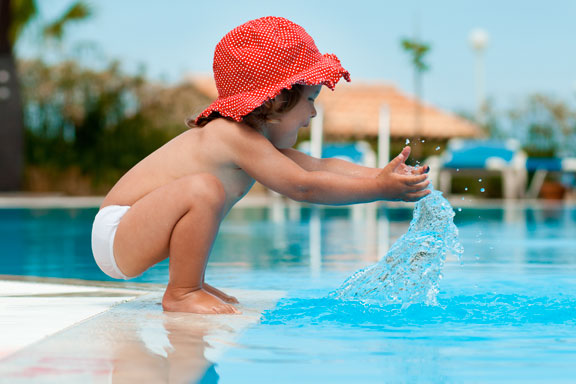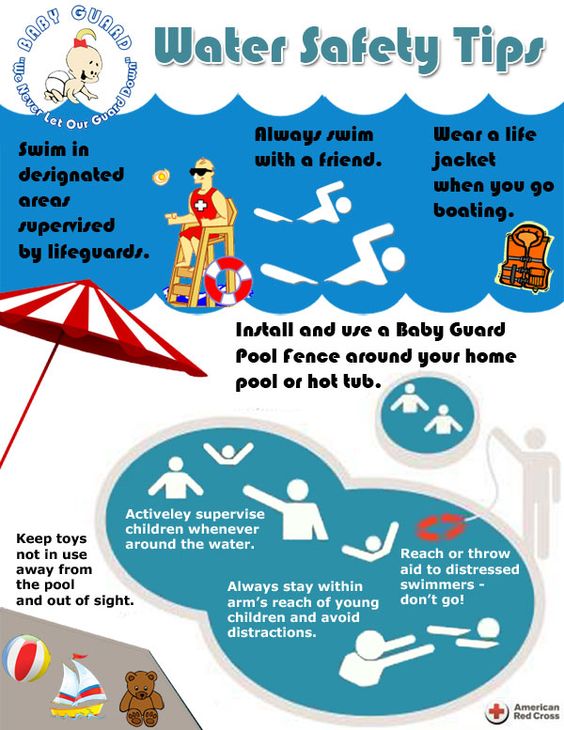
Parents, are you gearing up for the summer season? Read on for some helpful advice from one of our private swimming instructors, Emma K.
Water Area and Pool Safety
Warmer weather is getting here! In Southern California that means we want to spend time around the water so we can hop in and keep cool. It is important that we know how to keep children safe around the water since drowning is the #1 leading cause of unintentional death for children under 5. So, let’s go over a few ways to keep children safe around the pool area.
Prevention
A parent, guardian, or trusted adult should always be nearby if your child is going to be near water. This could be on a pool deck, near a lake, or at the beach. Children always need to have a set of eyes on them. For extra protection against an accidental fall, especially for a pool, it is a great idea to have a fence or gate if you have little ones running around. This fence should be about 4 feet tall and have a lock on it that is out of reach.
Before you Hit the Water
When your child is old enough begin reminding them that they always need to have an adult with them if they are going to be near the water. Be sure to go over with your child that even if they are splashing around in the shallow end they need to have an adult nearby. The best scenario is if the adult is in the water with the child. As the responsible adult, it is important that you stay nearby and alert. It is also essential to have a phone handy in case anything was to go wrong.

Pool Deck Rules
Whether you are at a community pool or lake or in your own backyard it is important to be aware of the rules. A few go to ones are no running, horseplay, or dunking and always swim with a buddy. As adults these rules are enforced for obvious safety concerns but children need to be reminded of them often. Children get excited to be around the water, especially if they are with friends, and forget to play it safe. If you are unsure of any rules or are in a new environment check with the lifeguard for additional safety.
Floatation Devices
If your swimmer is just getting started in the water you can use extra precaution by getting the right floatation device. For infants and toddlers this could be in the form of a life vest or ring with support between the legs. For older children pool noodles and kick boards are often kept nearby to help if they begin to get tired and need to recover. Rafts and lounge chairs are not a good idea to keep in the pool for beginning swimmers as they can get stuck under them.
Key Tools
Before your child gets in the water make sure they are taught essential tools if they run into trouble. It is important children know how to transition from a front to a back floating position. A back floating position allows children to breathe as well as conserve energy if they are getting tired and are far from the wall. This also demonstrates that they are relaxed in the water. They should be able to lift their head up or to the side to breathe if in a belly floating position. Children should also know how to propel themselves to the wall, and get out of the pool unassisted.
About the AuthorBy: Swim Instructor Emma K. in Banning, CA
Growing up around many bodies of water in North Florida swimming becomes part of you. I spent 10 years swimming competitively for private clubs as well as my schools. I went to regional and state swim meets in my high school years. I also served as captain my senior year. I spent 5 years as an Ocean Rescue lifeguard with an additional 3 in a pool environment. In my free time I surf and have competed in lifeguard and triathlon competitions. I hope to pass on my water safety knowledge and skills to others so they can enjoy it as much as I do.
ABOUT SUNSATIONAL SWIM SCHOOL
Sunsational Swim School is the 🥇 #1 rated provider of private, at-home swimming lessons in America. We have specialized swim instructors for students ages 6 months to adult, beginner to advanced. Featured on ABC, CBS, Impact 100, The List and others, Sunsational instructors have a minimum of 2 years of teaching experience, are CPR certified and insured, and have collectively taught over 302,223 lessons for more than 74,415 students nationwide!

